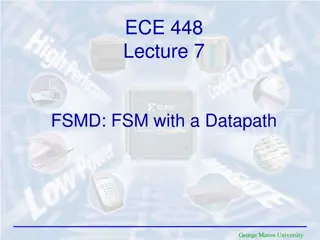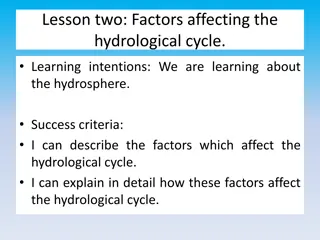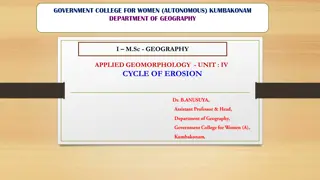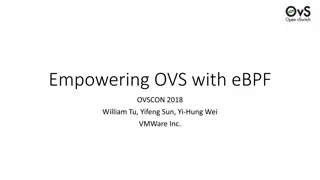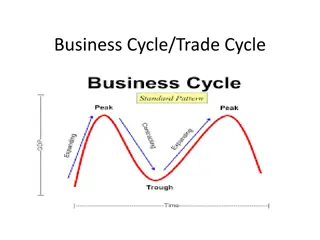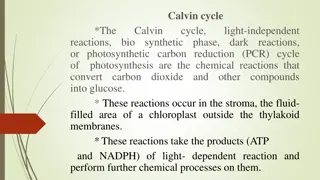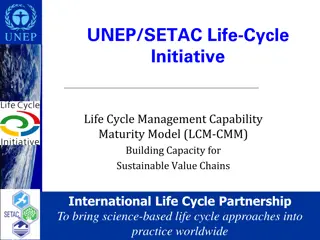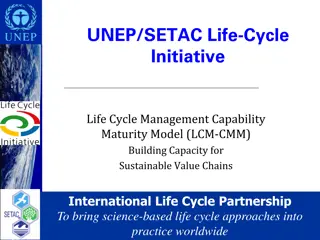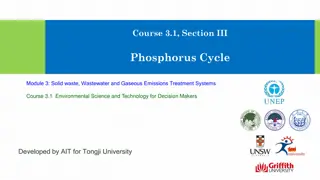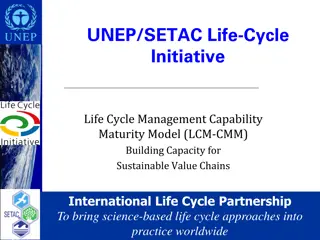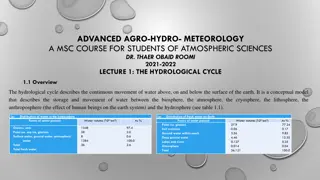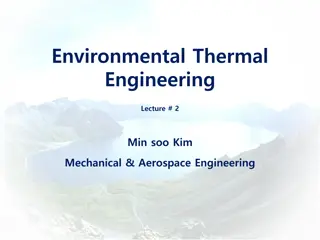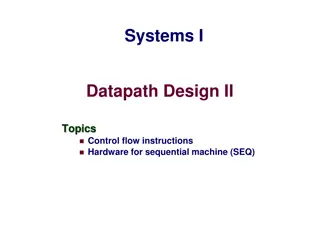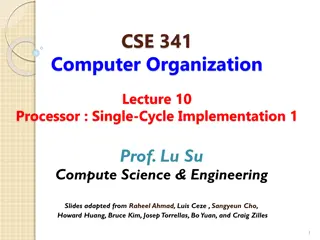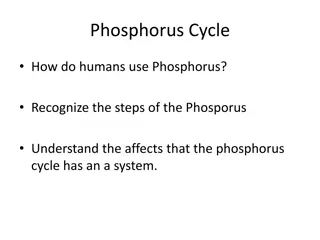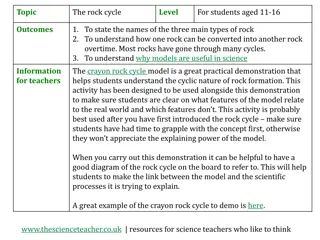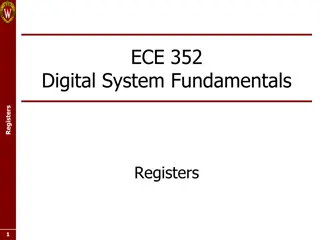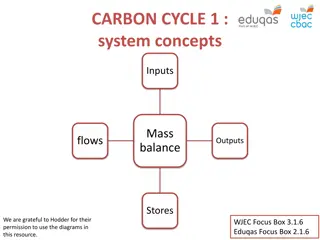SINGLE DISCONNECTING LINK EARTH BAR
Nexus Metal & Alloys is one of the leading manufacturers, exporters, and suppliers of world-class Copper Single Disconnecting Link Earth Bar, Six Way Earth Bar with Single Disconnecting Link, Copper Single Disconnecting Earth Bar at very cheap rate from Mumbai, Maharashtra, India.
4 views • 4 slides
Single-Family Rental, What You Need to Know
The world of single-family rentals (SFRs) is evolving rapidly, emerging as a highly popular choice for investors and tenants alike. From an investment perspective, the SFR market offers promising opportunities. As of 2023, the market accounts for 39% of all rentals in the United States, with over se
11 views • 8 slides
Single-Family Rental, What You Need to Know
The world of single-family rentals (SFRs) is evolving rapidly, emerging as a highly popular choice for investors and tenants alike. From an investment perspective, the SFR market offers promising opportunities. As of 2023, the market accounts for 39% of all rentals in the United States, with over se
8 views • 8 slides
Empowering Single Mothers: The Vigilant Mothers Association
Vigilant Mothers is an association dedicated to defending the rights of single mothers, providing support, and advocating for systemic changes. They address the challenges faced by single-parent families, particularly focusing on the gendered aspects affecting mothers. Through lobbying efforts and s
0 views • 15 slides
Navigating Divorce: A Guide for Newly Single Parents
Discover essential tips and advice for newly single parents navigating the challenges of divorce. Our guide is here to support you every step of the way. Get expert guidance on navigating divorce marriage site as a newly single parent. Our comprehensive guide offers practical tips and resources to h
2 views • 1 slides
Understanding FSMD: FSM with Datapath in FPGA Design
Explore the concept of Finite State Machine with Datapath (FSMD) in FPGA design, as discussed in the lecture at George Mason University. Learn about translating sequential algorithms into hardware, using registers and control paths to simulate variables, and realizing systems through RTL design. Dis
3 views • 54 slides
Factors Affecting the Hydrological Cycle: Understanding Physical and Human Influences
The hydrological cycle is influenced by both physical and human factors. Physical factors such as relief, vegetation, basin size, rock type, soil type, and climate all play a role in shaping the movement of water through the cycle. Human activities like forestry, urbanization, deforestation, mining,
2 views • 20 slides
Understanding the Accounting Cycle Process
The accounting cycle is a comprehensive process that involves recording and processing all financial transactions of a company, from their occurrence to their representation in financial statements and closing of accounts. It is crucial for bookkeepers to manage the entire cycle, which includes step
0 views • 11 slides
Urea Biosynthesis and the Krebs-Henseleit Cycle in the Liver
Urea is synthesized in the liver through a series of enzymatic steps known as the urea cycle or Krebs-Henseleit cycle. This process involves converting toxic ammonia into urea, a less toxic and water-soluble compound that can be easily excreted in urine. The liver plays a crucial role in urea biosyn
1 views • 20 slides
Processor Control Unit and ALU Implementation Overview
In Chapter 4, the processor's control unit and ALU are detailed in a simple implementation scheme. The ALU performs operations based on opcode values, while the control unit provides signals for various functions such as load/store, compare, and branch. Decoding techniques and control signal generat
1 views • 21 slides
Understanding the Cycle of Erosion: Applied Geomorphology Perspective
The Cycle of Erosion model, developed by Davis in the 1880s, explores the process of landmass upliftment, river erosion, and landscape transformation. The Normal Cycle of Erosion focuses on fluvial processes as the primary geomorphic agent, leading to the formation of peneplains. This cycle progress
0 views • 23 slides
Understanding the Accounting Cycle
The accounting cycle is a comprehensive process that involves recording and processing all financial transactions of a company, from their occurrence to their representation on financial statements and closing the accounts. This cycle, essential for bookkeepers, includes steps like transactions, jou
0 views • 11 slides
Leveraging eBPF for Enhanced Open vSwitch Functionality
Explore how eBPF technology empowers Open vSwitch (OVS) to implement datapath functionalities, reduce kernel version dependencies, and facilitate experimentation. Discover the benefits of eBPF, supported features, and project updates within OVS, enhancing flow processing efficiency and supporting a
0 views • 31 slides
Understanding the Business Cycle and Its Phases
The business cycle, also known as the trade cycle, depicts the cyclical nature of economic activity with alternating periods of prosperity, recession, depression, and recovery. It involves fluctuations in production, prices, income, employment, exports, and imports. The cycle affects all industries
1 views • 15 slides
MIPS Single-cycle Datapath Analysis for Instruction SW
Examine the operation of the single-cycle datapath for a specific MIPS instruction "SW.R4,-100(R16)". This analysis covers the instruction word value, register numbers, control signals, and the logic diagram implementation. Dive into details like instruction word encoding, register file operations,
0 views • 55 slides
Understanding the Calvin Cycle in Photosynthesis
The Calvin cycle, also known as the light-independent reactions, is a crucial part of photosynthesis where carbon dioxide is converted into glucose. This cycle occurs in the stroma of chloroplasts and utilizes ATP and NADPH from the light-dependent reactions to produce sugars for plants. It consists
5 views • 15 slides
Ideal Reheat Rankine Cycle Analysis for Steam Power Plant
Analyzing the thermal efficiency and mass flow rate of an ideal Rankine cycle with superheat and reheat using steam as the working fluid. The cycle involves stages of expansion, reheating, and condensing to generate a net power output of 100 MW. Detailed calculations for states of the cycle are prov
1 views • 5 slides
Adapting Contest Strategies for Declining Solar Cycle 24 and Solar Cycle 25 Precursors
As Solar Cycle 24 rapidly declines, preparations for the subsequent Solar Cycle 25 are crucial. Insights on weak solar activity, potentially weak Cycle 25, and the impact on contest strategies are discussed. Improved DX propagation, reliable openings, and signal strengths to Europe and Japan, amidst
0 views • 12 slides
Recognizing Patterns of Dating Violence and the Cycle of Abuse
Understanding the phases of dating violence is crucial in recognizing and addressing abusive behavior. The cycle typically begins with tension building, leading to an explosion of abuse in various forms. This is followed by a honeymoon phase where the abuser apologizes and makes promises. However, t
0 views • 6 slides
Sustainable Value Chains and Life Cycle Management Capability
The UNEP/SETAC Life-Cycle Initiative focuses on building capacity for sustainable value chains through the Life Cycle Management Capability Maturity Model (LCM-CMM). It emphasizes implementing science-based life cycle approaches globally by transitioning from events to management systems, conducting
1 views • 12 slides
Life Cycle Management for Sustainable Value Chains: Building Capacity and Promoting Innovation
This content delves into the Life Cycle Management Capability Maturity Model (LCM-CMM) aimed at enhancing sustainable value chains globally. It emphasizes the importance of bringing science-based life cycle approaches into practical implementation to address global issues, international standards, c
1 views • 11 slides
Fuel Cycle Analysis Toolbox: Enhancing Understanding and Optimization
This presentation focuses on the analyses and evaluations essential for assessing the potential of a fuel cycle, emphasizing different time scales, system sizes, objectives, and audiences. It discusses the need for coupled analyses, various tools required, and opportunities for improvement through i
1 views • 11 slides
Understanding the Phosphorus Cycle in Environmental Science
Exploring the intricate processes of the phosphorus cycle, this module delves into how solid waste, wastewater, and gaseous emissions are treated within environmental science and technology frameworks. The discussion covers the distinctive aspects of the phosphorus cycle, its impact on land and wate
0 views • 13 slides
Role of Cell Cycle in Nanoparticle Uptake and Dilution in Cell Population
The cell cycle plays a crucial role in the cellular uptake and dilution of nanoparticles within a cell population. This process involves different phases such as G1, S, G2, and M, each with specific functions related to cell growth, DNA synthesis, protein synthesis, and cell division. Understanding
0 views • 20 slides
Understanding Processor Hazards and Pipeline Stalls
Explore processor hazards like load-use and data hazards, along with strategies to avoid stalls in the pipeline. Discover how to detect and handle hazards efficiently for optimal performance in computer architecture. Learn about forwarding conditions, datapath design, and the impact of hazards on in
0 views • 30 slides
Sustainable Value Chains and Business Context in Life Cycle Management
The UNEP/SETAC Life-Cycle Initiative focuses on building capacity for sustainable value chains worldwide through the Life Cycle Management Capability Maturity Model. Understanding the competitive, environmental, and business contexts is crucial for implementing science-based life cycle approaches ef
0 views • 15 slides
Understanding the Hydrological Cycle in Advanced Agro-Hydro-Meteorology
The hydrological cycle involves the continuous movement of water on, above, and below the Earth's surface, encompassing various realms such as the biosphere, atmosphere, cryosphere, lithosphere, and hydrosphere. This cycle describes the storage and movement of water within different Earth systems an
0 views • 14 slides
Fundamentals of Environmental Thermal Engineering in Mechanical & Aerospace Engineering
Explore the key concepts of environmental thermal engineering in Mechanical & Aerospace Engineering, covering topics such as the Carnot cycle, actual vapor-compression cycle, principles of the vapor-compression cycle, Carnot heat engine, refrigeration cycle, and coefficient of performance. Understan
0 views • 51 slides
Understanding Opflex VPP Renderer in OpenStack Environment
Opflex VPP Renderer, part of the Opflex project, provides a reference implementation of the Opflex protocol for distributed control systems in OpenStack environments. It allows renderers to be loaded as plugins for the local datapath, with VPP as the chosen dataplane. The architecture involves host
0 views • 5 slides
Multicycle Datapath and Execution Steps Overview
This content provides a detailed explanation of a multicycle datapath and the execution steps involved in processing instructions. It covers key elements such as instruction fetching, decoding, memory referencing, ALU operations, branch and jump instructions, as well as memory access for read and wr
0 views • 11 slides
Understanding Cell Cycle Control in Biology
Maintaining control of the cell cycle is crucial to producing healthy daughter cells and preventing mutations that can lead to degenerative diseases like Parkinson's or cancer. Cell cycle checkpoints at G1, G2, and Metaphase ensure the cell meets specific requirements before progressing to the next
0 views • 11 slides
Trends in Implicit Parallelism and Microprocessor Architectures
Explore the implications of implicit parallelism in microprocessor architectures, addressing performance bottlenecks in processor, memory system, and datapath components. Prof. Vijay More delves into optimizing resource utilization, diverse architectural executions, and the impact on current compute
0 views • 47 slides
Sequential Machine Datapath Control Flow Design
Explore the hardware implementation of control flow instructions for a sequential machine, including executing jumps, calls, and returns. Dive into the stages of computation involved in handling branching, fetching instructions, updating program counters, and managing stack pointers.
0 views • 35 slides
Understanding the Estrous Cycle in Female Animals
The estrous cycle is a reproductive phenomenon in female animals, consisting of different phases like proestrus, estrus, metestrus, and diestrus. This cycle determines the periods of sexual receptivity and fertility in various species such as cows, ewes, sows, and mares. Factors like season, nutriti
0 views • 20 slides
Overview of Single-Cycle Implementation in Computer Organization
Today's lecture discussed the single-cycle implementation of processors, focusing on executing instructions in hardware based on the ISA. The process involves different cycles such as instruction fetch, decode, execution, memory access, and write-back. The presentation highlighted the functions of a
0 views • 24 slides
Understanding the Phosphorus Cycle and Its Impact on Ecosystems
Humans use phosphorus in various ways, from being a vital component in DNA, RNA, and cell membranes to its role in energy transfer processes. The phosphorus cycle involves steps such as weathering of rocks, phosphate mining for fertilizers, excretion/decomposition, and geologic forces. However, exce
0 views • 8 slides
Optimizing Packet Processing on Arm Architecture in OVS: A Story of Performance Enhancement and Stability
Exploring the optimization of packet processing on Arm architecture in OVS, focusing on improving performance and stability through various techniques such as offloading datapath operations, implementing efficient lookup tables, accelerating hash calculations, and addressing bottlenecks. The agenda
0 views • 22 slides
Exploring the Rock Cycle Using the Crayon Rock Cycle Model
This educational resource focuses on teaching students aged 11-16 about the rock cycle, including the types of rocks, how rocks transform over time, and the importance of models in science. It introduces the crayon rock cycle model as a hands-on demonstration to help students grasp the cyclic nature
0 views • 4 slides
Understanding Registers in Digital System Design
Registers play a vital role in digital systems by storing multi-bit binary data and facilitating various operations. They are essential for designing counters, accumulators, and circuits. Designing circuits with registers involves a divide and conquer approach, separating datapath and control unit c
0 views • 13 slides
Understanding the Carbon Cycle: System Concepts and Pathways
The carbon cycle involves the movement of carbon between different stores in the global system, such as the atmosphere, oceans, and biosphere. Flows, inputs, and outputs play crucial roles in this cycle, with processes like photosynthesis and respiration impacting carbon levels. Explore how mass bal
0 views • 13 slides





